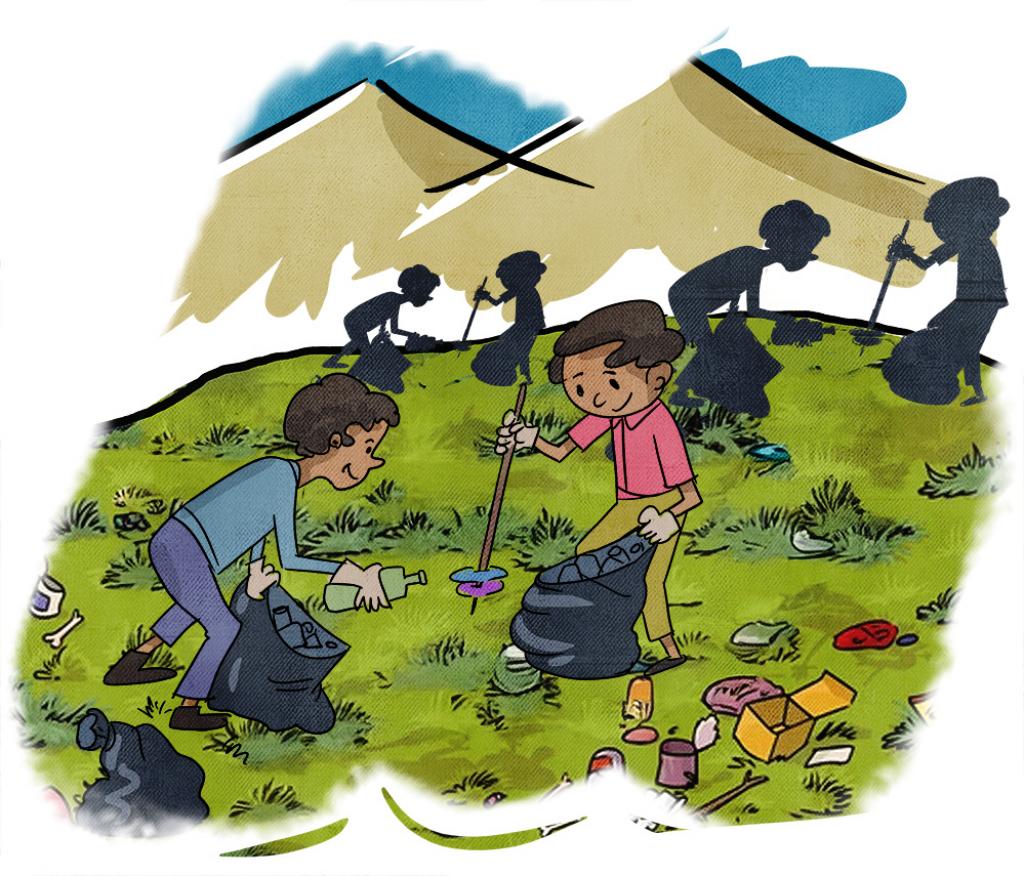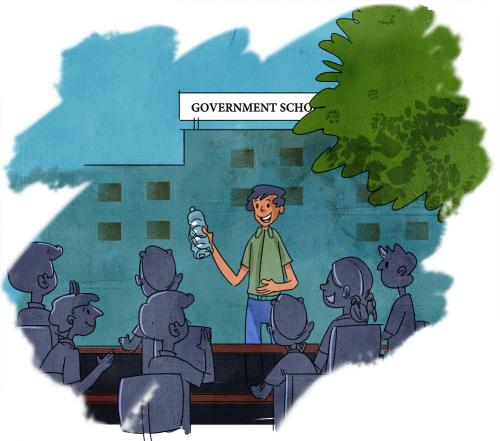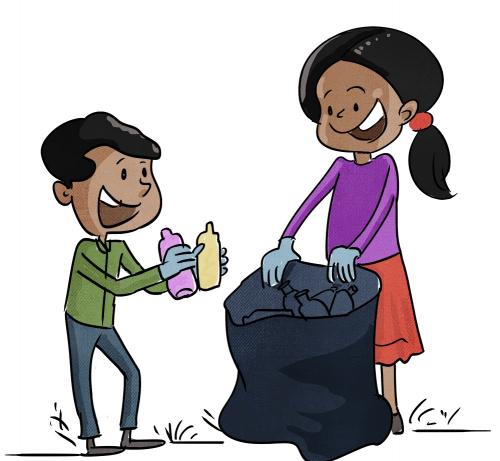
In Bajinga, Uttarakhand, children under youth leader Deepak Maithani are tackling plastic waste and inspiring families, showing how child-led action can transform communities sustainably.
While conducting research in the remote hills of Uttarakhand, exploring community-driven sustainability efforts for my study, I came across Bajinga a tiny village nestled among the pine-covered slopes and terraced fields of Tehri district. This place wasn’t featured on tourist maps or known for luxury resorts. Yet, it held something far more compelling: the inspiring story of a group of determined children who had taken on the role of stewards of their land.
It was here that I met Deepak Maithani, a grounded and visionary youth, whose quiet efforts over the years had transformed the village’s relationship with nature. In 2017, inspired by Nobel Peace Laureate Kailash Satyarthi and his philosophy of child-led change, Deepak laid the foundation of Bal Panchayat Bajinga. The idea was simple yet powerful: give children a platform to speak, decide, and act on the issues affecting their village.
What began as casual evening discussions in the government school courtyard soon evolved into a structured children's parliament. These weren’t mere play sessions. The children debated, resolved, and implemented. From education gaps and health concerns to water access and plastic pollution nothing was off the table.
Among all the issues they tackled, one loomed large: the plastic menace.
Tourists, drawn to the calm beauty of the Garhwal hills, often left behind more than just footprints. Plastic bottles, snack wrappers, and disposable cutlery littered the trekking paths and forest clearings. For many, the mountains were a weekend escape. But for the villagers, they were home and that home was turning into a dumping ground.
 The children noticed what the adults had become used to. And they chose not to accept it.
The children noticed what the adults had become used to. And they chose not to accept it.
Under Deepak Maithani’s guidance, the Bal Panchayat adopted a holistic model they called SHEC (Sports, Health, Education, and Climate). Each pillar of this model focused on creating well-rounded, environmentally conscious young citizens. It wasn’t an NGO’s curriculum it was their lived reality.
They organised weekly plastic waste collection drives, walking through fields, riverbanks, and school grounds, picking up every piece of waste they could find. Every bottle and wrapper was taken to a small storage space next to the school—no longer seen as garbage, but as material waiting for transformation.
In 2022, the initiative took a leap when they partnered with the FeelGood Plastic Bank, led by environmentalist Sudhir Sundriyal. Through this collaboration, the children learned how to make eco-bricks by tightly stuffing plastic waste into used bottles. Over time, they produced more than 2,000 eco-bricks, which were then used to build sitting spaces, garden boundaries, and even plant protectors in the village.
The motto was simple: “No plastic should be wasted every bottle has value.” What impressed me wasn’t just their discipline, but the joy they found in their work. During one of my visits, I saw a group of girls arranging eco-bricks around a sapling. “This is our tree,” one of them smiled. “And this is its wall of protection.”
But their efforts didn’t stop at the environment. The Panchayat initiated yoga sessions, mental health discussions, village Olympics, and storytelling sessions under the Star of the Month activity. They even launched peer-led health awareness drives and formed teams to visit homes, encouraging proper waste segregation and hygiene.
One of the most striking features of this movement was the involvement of families. Initially hesitant, parents gradually became regular attendees at the Panchayat meetings. They began participating in clean-up drives, listened to their children’s ideas, and even changed their own habits. A child-led model was reshaping an entire village’s behaviour.
There was no grand funding, no media frenzy just consistent action and local trust.
 As I spent more time in Bajinga, I realized that the transformation wasn’t just about a clean village. It was about reclaiming ownership of the land, of their lives, and of the future.
As I spent more time in Bajinga, I realized that the transformation wasn’t just about a clean village. It was about reclaiming ownership of the land, of their lives, and of the future.
Children who once shied away from speaking were now leading group discussions. Many of them had gone on to represent their village in block and district-level sports events and climate workshops. Their confidence, rooted in community service, had turned them into young leaders.
Recognition came too. The Tehri Women and Child Development Department honoured the initiative with the Gender Champion Award, and their story found its way into local newspapers and social media circles. But for Deepak Maithani, accolades were secondary.
“Our children now believe they can change things,” he told me. “And that belief is the real success.”
What made this story truly special was its replicability. There was no complex infrastructure, no digital tools, no costly equipment. It was a model that any village, school, or community across India could adopt with just a bit of intent and the right leadership.
In a country where the plastic problem is mounting and climate education often remains theoretical, Bajinga’s children showed a way forward through action, not anxiety.
They taught me that sustainability isn’t a distant goal to be achieved through high-level summits and policies. It’s a habit, nurtured in school corridors, dusty playgrounds, and village meetings where children decide to make their homes cleaner, greener, and kinder.
Though World Environment Day 2025 has now passed, the theme “Calling for collective action to tackle plastic pollution by drawing inspiration from nature and showcasing real-world solutions” continues to resonate. The story of Bajinga is not confined to a calendar date; it is a living example of this message in action.
As I reflect on that visit, I remember standing in the village courtyard, surrounded by the children of Bajinga. That morning, they raised their hands and took an oath “We promise to protect our village, our forests, and our future from plastic and pollution. We will be the change.”

It wasn’t scripted. It came from the heart.
And as I left that day, the view behind me was not of posters or slogans, but of children laughing under the clear blue sky, sorting bottles, and planning their next plantation drive. I couldn’t help but think if every village in India had a Deepak Maithani, and every school had a Bal Panchayat, how different would our future look?
The mountains of Uttarakhand may still attract tourists, but thanks to these young environmentalists, they are slowly becoming more than just backdrops for selfies. They are turning into living classrooms, where children lead and adults learn.
In the echoes of their laughter and the rustle of the plastic bottles they carry, I heard a message loud and clear: real change doesn’t always come from above. Sometimes, it walks barefoot through a village, holding a recycled bottle and a dream.